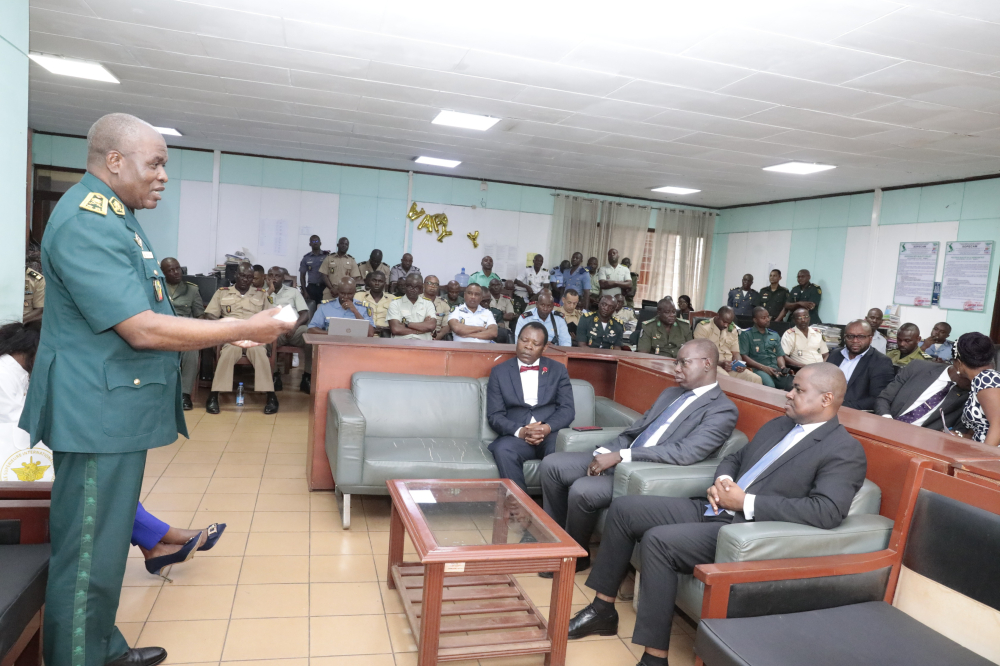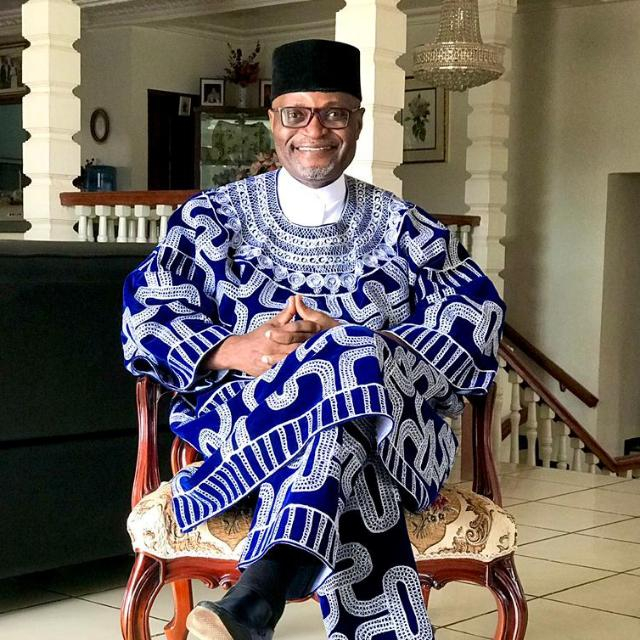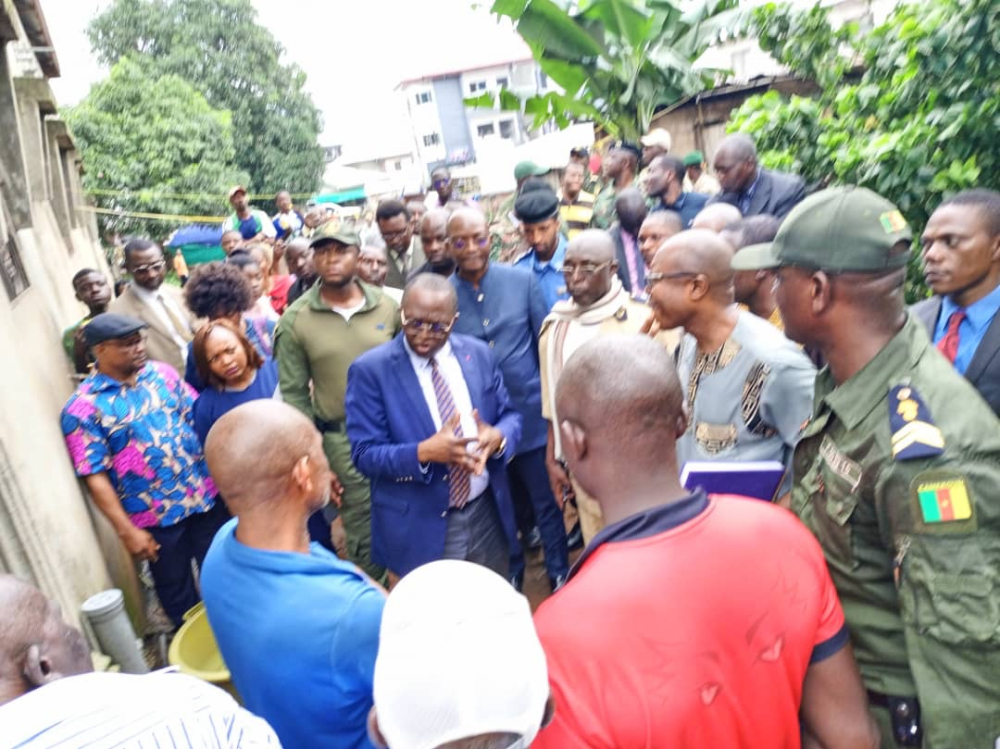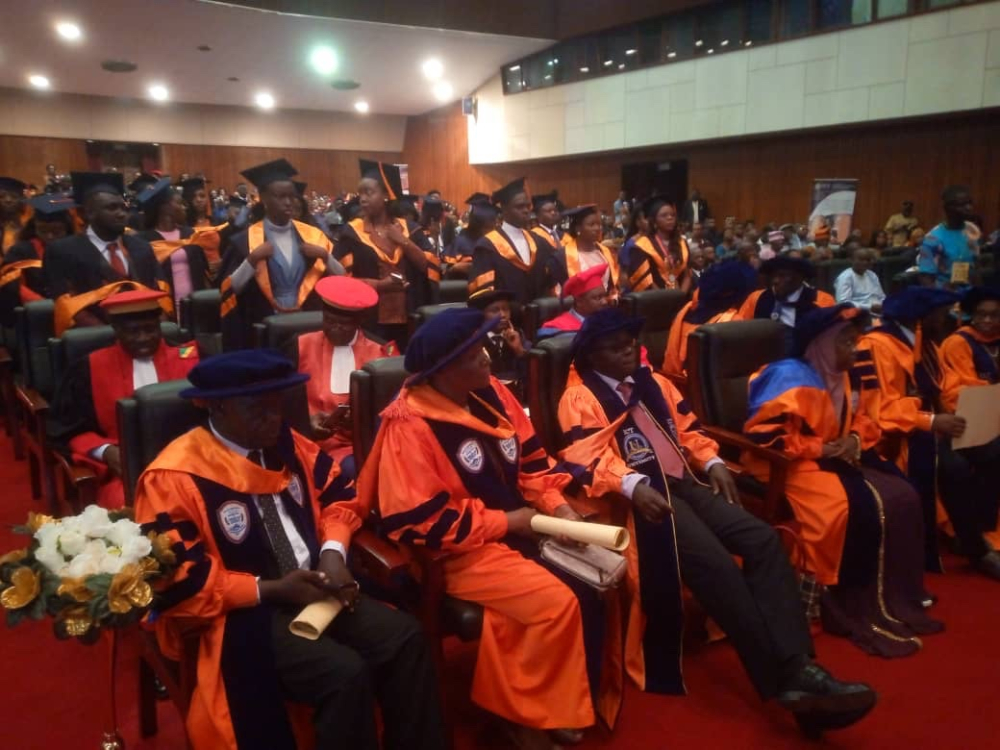
The batch of 60 trainees from the Yaounde International War College exchanged with the staff and management of the Cameroon News and Publishing Corporation yesterday, July 19
ome 60 student officers of the Yaounde International War College, drawn from 26 African countries, paid a familiarisation visit to the headquarters of the Cameroon News and Publishing Corporation, SOPECAM yesterday, Wednesday, July 19. The countries include Benin, Cote D’Ivoire, Ghana, the Central African Republic, Democratic Republic of Congo, Mauritius, Morocco, Nigeria, Senegal, and Togo. On the one hand, the officers were interested in knowing the challenges that journalists often face reporting from a battlefront. While on the other, journalists at SOPECAM were eager to know how they can easily have access to vital military information.
“It is not easy getting access to information when it comes to military. There is a lot of protocol,” according to Major Philip Zanlerigu, trainee from Ghana. “I think that there is a reason why that is so because the military outfit is not everything that must be out there. It happens that sometimes some military men are not able to manage certain information at their level. Working in tandem and understanding both parties helps in future endeavours,” he told Cameroon Insider.
But he agrees that it is very important for the military to cooperate with the media. “It is the media that translate the work that we do to the population. And so, if we are in conflict with the media, that means we are in conflict with what the people want to hear,” Zanlerigu said. He said the visit to SOPECAM enabled him and his colleagues to understand the workability and the challenges associated with media work. “Some media men and women find themselves with us when we are in an operational areas. We appreciate the challenges that they face while operating with us. A time will come when we find ourselves operating with them, and understand their problem, and be able to work with them in tandem in order the achieve the corporate goal,” the Ghanaian Major said.
“During the answer and question session, some of the staff of SOPECAM responded to some of the queries. For instance, we wanted to find out if journalists have had the experience on the battlefield with the military and how they were able to surmount the challenges. They gave practical examples regarding risks associated with journalism.” After SOPECAM, the next stop of the trainees of the Yaounde International War College is the Cameroon Radio Television, CRTV.








Comments